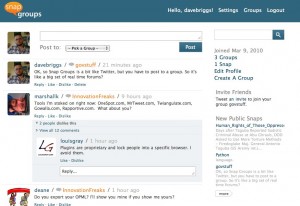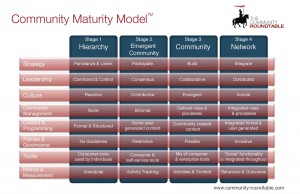1. IBM, Opportunity Peterborough and Peterborough City Council are working together on a project which aims to transform Peterborough into the leading sustainable city in the UK.
From the IBM website:
The collaboration has outlined plans to launch a Sustainable City Visualisation project, which will initially focus on building a new online platform to monitor and analyze data on Peterborough’s energy, water, transport and waste systems. This data will be used to produce a real-time, integrated view of the city’s environmental performance. Residents and city officials will be able to log on to the web portal and easily access the necessary information to make more informed decisions about resource usage. For example, the city will be able to make suggestions to improve home water and energy usage, while being able to work more effectively with the utilities to plan the long term energy and water infrastructure that is needed for a sustainable future.
Interesting stuff, and something I’ll keep an eye on. GreenMonk is a great source of analysis on sustainability and IT, and here is a link to all their posts which feature IBM, who seem to be doing quite bit in this space at the moment. It’s vital for local government to be seen to be leading on this agenda too, so it’s an interesting collaboration.
Hat tip to James Governor for mentioning this story on Twitter, where I picked it up.
2. The RSA are working with the Council in Peterborough to run the Citizen Power project. From the project’s Ning-based site:
Working in collaboration with Peterborough City Council and the Arts Council East, the Citizen Power project will span two years and be made up of a number of programmes based around the arts and social change, an area-based learning curriculum, a sustainable citizenship campaign, user-centred drug services and the use of online social media. Together, these different programmes of work will aim to address Peterborough’s challenges as well as work towards achieving the city’s potential.
I see David Wilcox is being his usual challenging self on the site, which is good, and I have joined to see where I might help (I’m a fellow of the RSA myself). Must say, the fact that the launch event for this local community based project in Peterborough took place in John Adam Street isn’t particularly inspiring. It will be interesting to see how this one pans out.
Good to see interesting things happening in Peterbough – it’s just down the road, and was the nearest big place to where I grew up.



